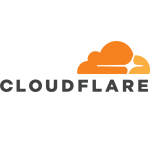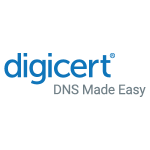What is our primary use case?
We use NS1 as the primary point of contact, the first point of contact for a client to reach us, to discover a DNS. We use NS1 in two ways: We use the Managed DNS product and the Dedicated DNS product, which gives us redundancy. Our primary use-case is for getting users to the CDN [content delivery network] one that is best suited for each user.
We have an automated deployment, so we use Terraform to deploy changes.
The managed solution is completely managed by NS1; it's not on-premises.
How has it helped my organization?
The integrations for monitoring events is helpful. Monitoring of events can change things in the Filter Chain. That helps our team receive alerts. Our team is kept in the loop about what is happening.
When it comes to maintaining uptime during a major DDoS attack, NS1 is very good. NS1's Dedicated DNS gives us redundancy. In addition, NS1 has worked closely with us to get us into the position we are in today. They do a good job in communicating problems and of looking forward with their solutions. They don't just address the current issue when it comes to DDoS and mitigation. These are continuous issues. It's not just a one-off that you handle once. They look for solutions that will solve future DDoS impact.
It has also improved our DNS response times. Because we have been using NS1 for quite a long time, it's hard to estimate how much response times have improved. But since we started with them we have definitely done better. The most critical thing that we look at, rather than the response time, is the time for propagation, and that's been very good.
The solution has also massively reduced DNS maintenance work in our company. The way we were set up a long time ago was that we would maintain things by ourselves, and now we don't do anything along those lines. For the external DNS, we do about 10 percent of the amount of work that we did previously. That's a huge improvement. The amount of maintenance has gone down significantly and our maintenance cost is down by at least 70 percent, for the external DNS.
NS1's automation has also enabled us to assign people to other kinds of work. It saves us time so that we can concentrate on other things.
Overall, it has helped to improve our end-user experience. Knowing the DNS delivery part is taken care of is important; performance is very critical. Taking users to the right CDN or data center is very important for the end-user experience. NS1 is part of the set of tools we have to achieve that better user experience and to get them to the right place.
What is most valuable?
The Filter Chain is one of the most valuable features, for geo-load balancing and geo-fencing. The Filter Chain is the most useful because it allows us to do several things. With geo-fencing we can redirect a particular user to a particular answer. That's very valuable for us. Filter Chains with monitoring is our strategy to provide redundancy.
We also use the automation extensively, with Terraform.
From the get-go, we have used the API from NS1. We have hardly used the solution's UI. For any major changes, we use the API and that works brilliantly for us. As an infrastructure team and organization, we heavily value infrastructure as code, so this is a great approach. Any feature that comes into the Filter Chain gets exposed first to the API, before it even goes to the human resources. It works very well and enables us to adapt a complete infrastructure-as-code approach.
The real-time telemetry and ecosystem of integrations were also a key part for us when choosing among multiple vendors, because of geo-location. It's very crucial for us. Choosing which server to use, in case of an emergency, for example, we depend on NS1's monitors. It's reliable and hasn't caused us any trouble. Another advantage is that there are multiple regions for the telemetry collections so, even if one of them has an issue, we are confident that there is enough redundancy to let us sail through the problem.
What needs improvement?
The Filter Chain simulation is really good in the UI, but it would be nice to have something similar in the API so that we could simulate and test things before we deploy them.
And while it's not exactly a problem, a nice-to-have would be a faster API. If we have to make a change to many things, it would be nice if there were a bulk change operation. For example, if we want to change TTL, we would just issue one bulk operation. We can make the calls simultaneously, but there are limits, even if you do things in parallel.
Buyer's Guide
IBM NS1 Connect
January 2026
Learn what your peers think about IBM NS1 Connect. Get advice and tips from experienced pros sharing their opinions. Updated: January 2026.
881,114 professionals have used our research since 2012.
For how long have I used the solution?
I have been using NS1 Managed DNS in this company for about five years.
What do I think about the stability of the solution?
The stability has been very good. We haven't really had major problems. Especially, since we have the Dedicated DNS as well, our setup of NS1, as a whole, the Managed and the Dedicated, is very stable.
What do I think about the scalability of the solution?
We have confidence in NS1 that they will take care of our scaling needs. It's a hosted solution so we just send our traffic to them and, so far, there haven't been any issues.
The solution has helped us to meet SLAs and customers’ demands, without adding complexity. The scalability, when it comes to traffic, is very important because our traffic pattern changes. It's not a straight line on the graph. Scalability is a key feature for us.
How are customer service and support?
When we got started with Dedicated DNS, the technical support worked with us and they were really good and helpful.
How was the initial setup?
The initial was very simple and straightforward. Initially, sending the users to one of the data centers regions was the most complex part, but we had good help from support to understand Filter Chains and to set things up correctly. The process didn't take too long.
We didn't have any downtime when migrating to NS1 because we had external DNS as well.
What about the implementation team?
Our experience with the NS1 customer success team has been good. We have worked closely with them on many occasions. Some of the problems were even new to them, because we had unique features. They were happy to engage and bring in people from their core engineering teams to help. It has been really nice working with NS1's customer success teams. That's one of the biggest advantages of NS1.
What was our ROI?
I believe we have seen ROI, and that's why we keep going back to them. We've been using them for five years and that is a long time. It's useful for us and it delivers.
Which other solutions did I evaluate?
We recently evaluated another solution, but the complexity involved with it was slightly high. With NS1, our Filter Chain is cleaner. Also, scaling would add a complexity factor with the other solution.
If someone says they can use a basic DNS, one issue is that it only works to a certain scale. After a certain limit you will have to pay exponentially more. You need to be aware of up to what scale a solution will work for you. Another issue to consider is the flexibility. An enterprise solution has features, such as the Filter Chain, to do complex things, and they might not be available in the free solutions. A third factor is support. That is one of the key features in evaluating these solutions, especially if you're building a product that is critical for a customer. I'm not sure that the free solutions provide that level of support. All of these factors are very good with NS1.
What other advice do I have?
Engage as much as you can with their customer success team. Explain your use cases very well and they will suggest good solutions that are the perfect fit. Keep in touch with their team. NS1 is an evolving product. The more you stay in touch with the customer success and technical support teams, the more likely it is you will be successful.
Also, focus on automation. NS1 is API-driven. The fact that we are really focused on and invested in automation tools has really helped us.
Disclosure: PeerSpot contacted the reviewer to collect the review and to validate authenticity. The reviewer was referred by the vendor, but the review is not subject to editing or approval by the vendor.














